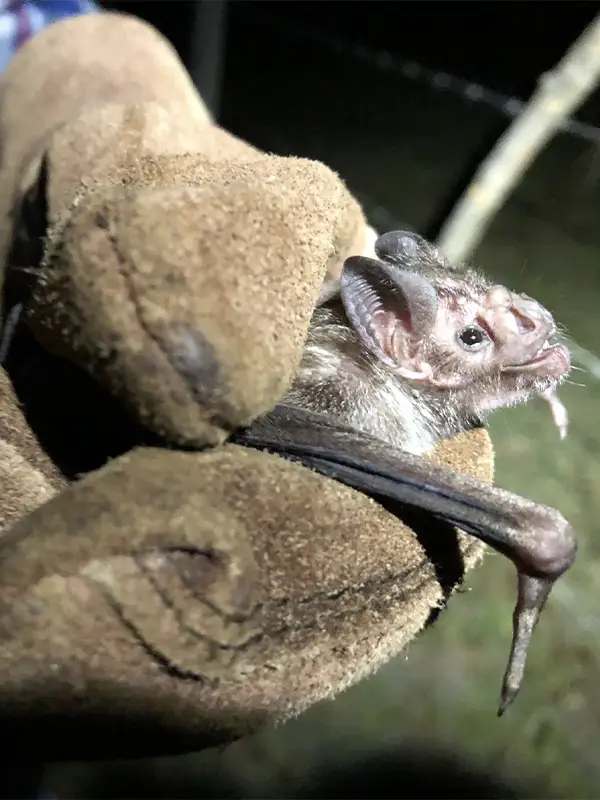Faculty Spotlight: Sebastian Stockmaier
Faculty Spotlight: Sebastian Stockmaier
Bat Behavior and Cross-Species Transmission

Sebastian Stockmaier, who works at the intersection of behavioral and disease ecology, began as an assistant professor in the Department of Ecology and Evolutionary Biology in January 2023. He is interested in how host behaviors affect pathogen transmission and, in reverse, how pathogens affect host behaviors. Most of his work revolves around Neotropical bats in Panama, Belize, and (hopefully soon) Costa Rica. He uses the bats to understand social distancing behaviors and their costs and benefits, how pathogens manipulate host social behaviors, and whether we can predict and understand cross-species transmission by tracking small-scale interactions between different animals.
“My main study organism is common vampire bats. Vampire bats are fascinating animals because they are highly social and form social relationships almost equivalent to human friendships,” he explained. “We can use them to understand how the benefits of social relationships are traded-off against the costs of behaving sick (e.g., social withdrawal) but also, in general, how highly social animals deal with their sick conspecifics. In addition, we use them to understand animal-animal interactions that could potentially lead to cross-species transmission. They exclusively feed on blood. Cattle and other livestock are the vampire bat’s primary food source at many of our field sites. This really sets up a promising study system to understand and predict how fine-scale behavioral interactions could lead to cross-species transmission because vampire bats not only frequently interact with other animals, but are also known to transmit certain pathogens to them.”

Stockmaier is from a small mountain town in southern Germany, where he grew up spending a lot of time outside.
“I was always passionate about nature, and especially animals, but also grew an interest in infectious disease biology and immunology during my undergraduate studies in bioengineering. I was able to merge my interests during my master’s research at the University of Konstanz and the Max Planck Institute for Animal Behavior (formerly for Ornithology), where I studied wild bats. I then moved to the US and continued my work during my PhD at the University of Texas at Austin, and as a postdoctoral researcher at the Ohio State University before joining the EEB department at UT. I would describe myself as an empiricist, and so I am especially excited about all the collaborations with more quantitative-leaning researchers in the department and across campus.”
Stockmaier is passionate about science outreach and, especially, about bats.
“Unfortunately, bats have gotten a bad reputation in recent years, and I like to highlight to the public that concerns are in most cases unfounded and that they are fascinating animals that are an integral part of many ecosystems,” he said. “When I am not chasing bats through the forest, I enjoy hiking, camping, paddleboarding, and playing soccer. I am excited about all the public land to explore in and around Knoxville.”